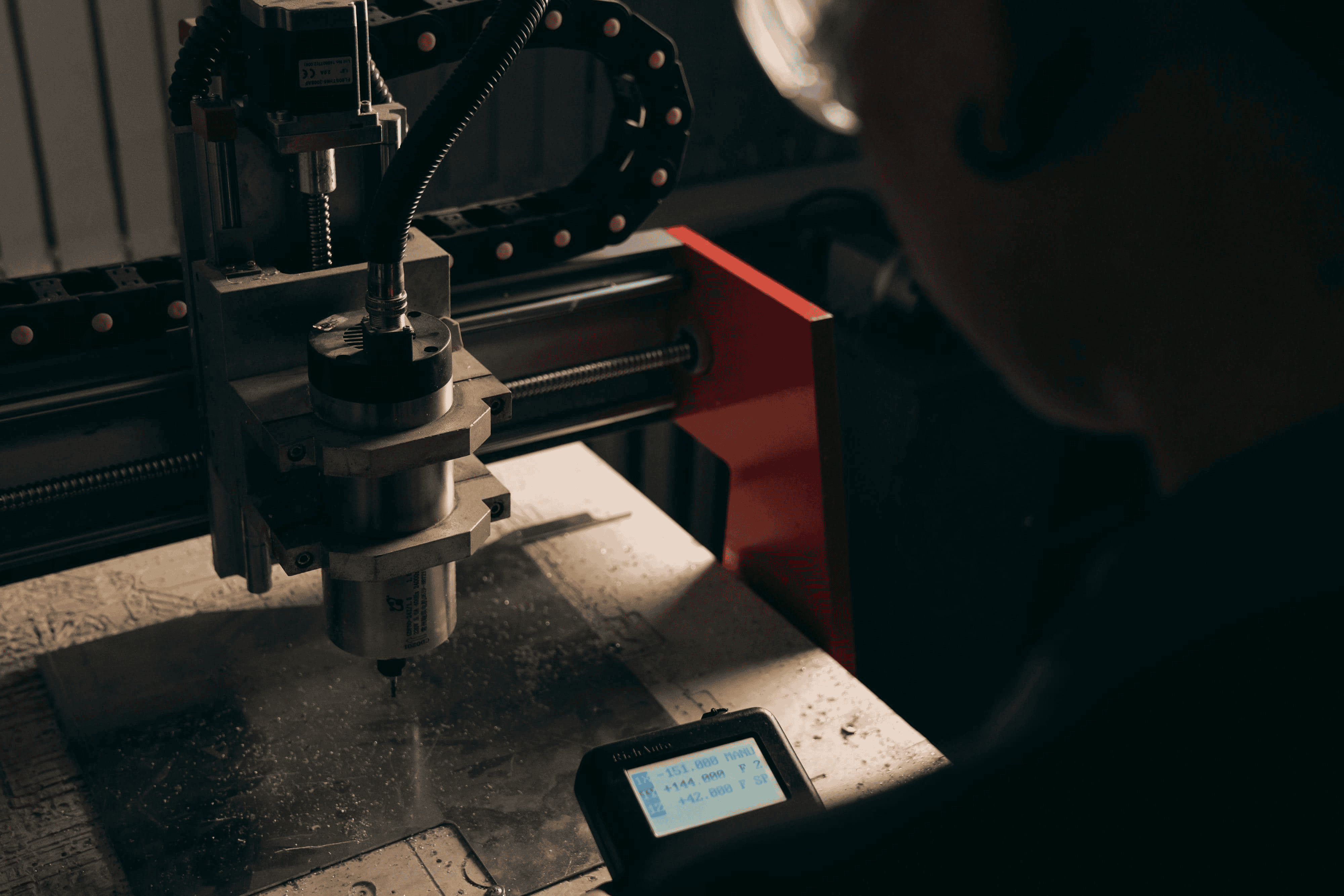Custom Fabrication

Precision aluminum and steel metal stamping parts produced by top stamping companies
Metal stamping services transform coil or sheet into functional forms through a press stroke against a matched die set. Blanking defines the outline, forming shapes the profile, and secondary features like coining, embossing, or lancing add detail. Progressive die lines carry a strip through multiple stations to create complex metal stamping parts with speed and repeatability. Transfer systems move individual blanks between dies when geometry demands more space or draw depth. The result is a stable pathway to produce consistent metal stamping products at scale.
Press tonnage, stroke, and speed must match material thickness and part geometry. Die steel selection and surface treatments affect tool life and edge quality. Lubrication controls friction and heat, protecting both die and part. For custom aluminum stampings, alloy temper and grain direction influence springback and flange integrity. For ferrous parts, draw beads and radii manage flow to avoid splits while preserving crisp features.
Aluminum grades such as 3003, 5052, and 6061 cover common needs from ductility to strength, with tempers tuned for formability or rigidity. Steel options range from mild to advanced high strength with coatings that resist corrosion. Hemmed edges, relief notches, and generous radii reduce cracking and burr. Pilot holes, carrier tabs, and datum references support progressive control and downstream assembly. Good drawings communicate critical and reference dimensions, surface finish, and allowable burr.
Aluminum stamping companies typically emphasize clean surface handling, lube control, and tool coatings that resist galling. Steel stamping companies lean on robust die design, restraint systems, and hardened wear surfaces. Metal pressing companies with both sets of expertise help mixed material programs move faster. Stamping companies should demonstrate real capability data such as capability index studies, first article results, and traceable inspection records.
Production models span short run soft tooling, hard progressive dies for high volume, and hybrid paths that combine laser blanking with forming dies. Short run pathways get parts in hand fast for validation while setting the stage for full tooling. Deep draw cups, hat sections, brackets, and bezels can be formed in a single stroke or stepped across stations depending on complexity.
Tooling cost depends on station count, pilots, cams, lifters, and sensors. Progressive dies raise up front investment but lower piece price when volumes are high. Transfer tools fit large envelopes or complex draws. For custom aluminum stampings, add budget for anodize or conversion coating, and for steel include zinc or e coat plans. Tolerance bands, hole to edge distances, and cosmetic class influence both die complexity and run rate.
A reliable sourcing plan starts with clear requirements. Define the alloy, thickness, temper, finish, and inspection method. Identify which dimensions control function and which can float. Plan for deburring, washing, and packaging that protects cosmetic faces. Stable coil feed, flatness, and burr control improve downstream assembly yields. As volumes grow, progressive paths reduce scrap and increase repeatability, especially for intricate metal stamping products.
Quality frameworks matter. Look for process control plans, PPAP deliverables, and traceable lot control. Tooling maintenance logs and spare component strategies avoid downtime. Capacity modeling and secondary operations alignment keep deadlines intact when programs ramp or shift.
Match part geometry and volume to the right process. Use short run forming for pilots and service parts. Move to progressive dies for sustained production. For aluminum bezels or trim, prioritize cosmetic handling and post finish steps. For structural steel brackets, focus on flatness, hole true position, and consistent tensile performance. The best partner will show sample parts with similar geometry and documented measurement results.
If you need a prototype to validate geometry before locking tooling, we can model, cut, and form test pieces, then guide you toward the most efficient production path. Our team in Fayetteville, Arkansas supports manufacturability reviews, fixture design, and low volume forming to de risk your launch. When your print is stable, we coordinate with trusted regional stamping partners for volume runs and manage quality checkpoints so parts arrive ready for assembly.
Explore what we do in OZK Custom Fabrication to see how precision design and forming come together for real world parts. For a deeper list of processes we support, visit our fabrication services overview. Curious about our approach and build standards? Learn more at Why choose OZK Customs.
Send us your drawing and goals. We will review materials, forming steps, and inspection plans, then return a concise proposal. From custom aluminum stampings to mixed metal programs, our workflow turns intent into consistent, install ready components without guesswork.
We're happy to talk specs, fitment, or just bounce ideas around.
Ready to turn a drawing into a road ready part? Share your print or model and our team will review manufacturability, recommend the right stamping path, and provide a clear build plan. OZK Customs in Fayetteville, Arkansas delivers design refinement, prototyping, and production handoff so your components arrive on time and fit the first time. Start your quote now and let us engineer the details.
ADDRESS:
6159 E Huntsville Rd, Fayetteville, AR 72701
PHONE:
(479) 326-9200
EMAIL:
info@ozkvans.com